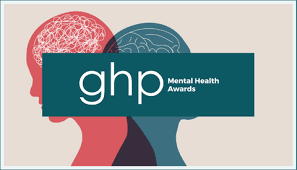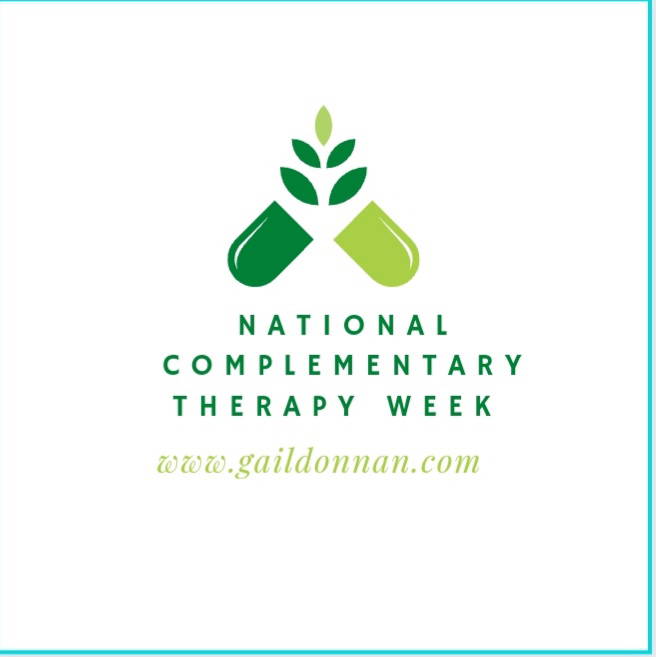Is the UK nearing the turning point for Integrative Health?
In 2020 I embarked on a twelve month research project entitled ‘Interdisciplinary Approaches to Psychological Trauma – evaluating different perspectives’ (Donnan 2021, Leeds Beckett). As a clinical mental health practitioner and a complementary therapist it was challenging to avoid using bias for either approach and the findings opened my eyes to the disparity between how mental and physical health are treated within the UK.
Do Complementary Therapies get a Raw Deal?
I entered into the research with the opinion that complementary therapies got a raw deal but my findings were not in line with my expectations. I interviewed eight trauma experts that use ‘bottom up’ or ‘somatic’ complementary therapies in the UK and the results were quite unexpected. I was shocked to uncover the issues complementary therapies have in the UK around accountability, legislation, evidence gathering and reporting. As a former complementary therapies teacher in further education it wasn’t really new to me how standards conflict, or how evidence gathering is not part of the curriculum for the majority of qualifications and how the attainment levels and certification vary widely.
Current Voluntary Regulation
Not one interviewee contested the efficacy of complementary therapies and it was clear that the contextualisation that exists in the west quite rightly requires accountability, standardisation, attainment, training, evidence gathering and reporting standards. There is a lot of work to be considered before complementary therapies are given the respect they deserve to fit alongside medical models and there needs to be a mandatory level of rigor to inspire public confidence because at the moment registration is voluntary in the UK.
Demarcation and Accountability
It is clear that how we define different disciplines, the evidence gathering and clinical guidelines need to change to attract funding for research projects. We need some demarcation between the narrative of alternative and complementary therapies. Complementary therapies do just that, they complement medical advice to ensure an interdisciplinary approach to recovery rather than being seen as an alternative. It is very clear that complementary therapies need a central reporting body to move towards a high priority for NHS capital budgets. It is problematic that no-one in the UK is taking accountability for complementary therapies apart from a small movement of medical professionals and practitioners that are pushing for integration of both sets of approaches that could impact on a wider scale speaking in monetary terms which will instigate change nationally.
Institutionalised Bias v Institutional Change
From my research it is clear that an entrenched, established, institutionalised bias forms the disparity between how mental illness and physical ill health are viewed. I observed the scarce research around psychological therapies in general compared with pharmaceutical research. There is very little research around complementary approaches to co-morbid symptoms due to accountability issues and there is little incentive to fund high quality efficacy research.
Recent Research
The most recent survey being promoted through the Research Council for Complementary Medicine (RCCM) was by The Federation of Holistic Therapists (FHT) during July 2021 ‘How complementary therapy has helped me”. It is a live survey lasting the duration of a year which is analysed on a regular basis and the first analysis began in July 2021. It aims to gather ‘grassroots’ data directly from the public around whether complementary approaches are having a positive impact on their health and wellbeing. The results will be presented to the media, government and health and care agencies to demonstrate how complementary therapies can be used alongside conventional medicine to help address individual needs but to take the pressure off the health and care system.
After a thirteen year void, a research project took place back in 2018 (Sharp et al) in order to gain up to date figures for practitioner-led complementary use in England. It showed that 12% of the adult population visited a complementary practitioner in 2005 and in 2018 this figure had only risen to 16%, of the 4862 adults surveyed face to face the results were:
• Safety concerns
• Poor availability
• GP referrals and recommendation dropped from 38% in 1999 to 19% in 2009 which was thought to be influenced
by increased scepticism or NHS financial pressures
• Willingness from the end user to pay
NHS endorsement clearly needs to be evidence based which could be done through two different models of integration. One would be selective incorporation where NHS staff deliver complementary therapies as some of the NHS foundation trusts are now doing or practitioners deliver complementary therapies on NHS premises.
Are Social Enterprises and Community Interest Companies the Answer?
From my findings I undertook a six month’s project funded by my local Mayor and local community funding. I founded a community interest company supporting people living with psychological trauma and mental health issues. Our practitioners used ‘bottom up’ or ‘somatic’ approaches (a blend of complementary therapies and somatic psychotherapy), no surprises our recovery rate is around 90% with no relapse cases to date. The impact which the CIC has had on our community and been huge and we became approved by The Primary Care Networks receiving referrals from 17 GP surgeries, IAPT (Improving Access to Psychological Treatment) and Community Mental Health. We are currently at full capacity as we presently receive no funding from these services despite having 19 team members made up of practitioners and volunteer administration staff.
Sharp et al observed that there was little published research around co-payment for complementary therapies but evidence from our community interest company shows that people are willing to pay something, we offer people the chance to pay low cost entry to therapies and classes, make a donation or pay forward for someone else. Our ethos is if you ask for some level of payment the services do not lose their value and we have a very low rate of DNAs (did not arrive).
Correlation between Complex Trauma and Multiple Health Issues
We work in a mechanistic way within a structure, using a robust and safe framework with the addition of Primary Care Network approval and referral. Sadly we currently do not receive any funding from the services that refer people to us but we gather our own soft and blind data and testimonials, measure efficacy and complete case studies to attract funding. The most important blind data we are gathering is that there is a correlation between people living with complex trauma and multiple health problems such as Fibromyalgia, Inflammatory Bowel Disease, Heart problems and other auto-immune diseases. Is it time that more social enterprises, community interest companies and charities stepped up to show the way?
NHS Foundation Trusts
There is amazing work out there being done at NHS foundation trusts helping patients, their carers’ and NHS staff access complementary therapies within a safe and structured framework. Their model offers training opportunities within a clinical environment, leading to a future generation of highly skilled and confident practitioners able to offer a range of therapies to an increasingly complex population needs to be examined by other NHS foundation trusts.
The Future for Complementary Therapies
This research opened up a dialogue between former doctors, NHS staff and trauma-informed experts who have all agreed it is time for change to cope with the rising mental health epidemic in the UK. Their suggestions are that patients could be engaged in the entire process of evidence production to develop guidelines for commissioned appropriate research. Further surveys could be commissioned and an increase in trauma-informed researchers, patients and commissioners could collaborate for people to access complementary therapies via GP surgeries.
Considerations
• Should the NHS adopt complementary therapies into their structure and be accountable for regulation?
• Should the Primary Care Networks approve and signpost patients to grassroots organisations so they are able
to make informed choices?
• Should therapists join forces and push for mandatory regulation, standardised training, set up frameworks
for evidence reporting to produce data increasing eligibility for funding?
• If complementary therapies do achieve great results for some then whose decisions is it to deprive anyone
the opportunity of those benefits?
Either way, something needs to be done to heal the disparities between mental health, physical health and psychological trauma but who is going to take up the gauntlet?
References
Donnan, G. (2021) ‘Interdisciplinary Approaches to Psychological Trauma – evaluating different perspectives’. Leeds Beckett
Sharp, D., Lorenc, A., Morris, R., Feder, G., Little, P., Hollinghurst, S., Mercer, S.W. and MacPherson, H. (2018). Complementary medicine use, views, and experiences: a national survey in England. BJGP Open, p.bjgpopen18X101614.

